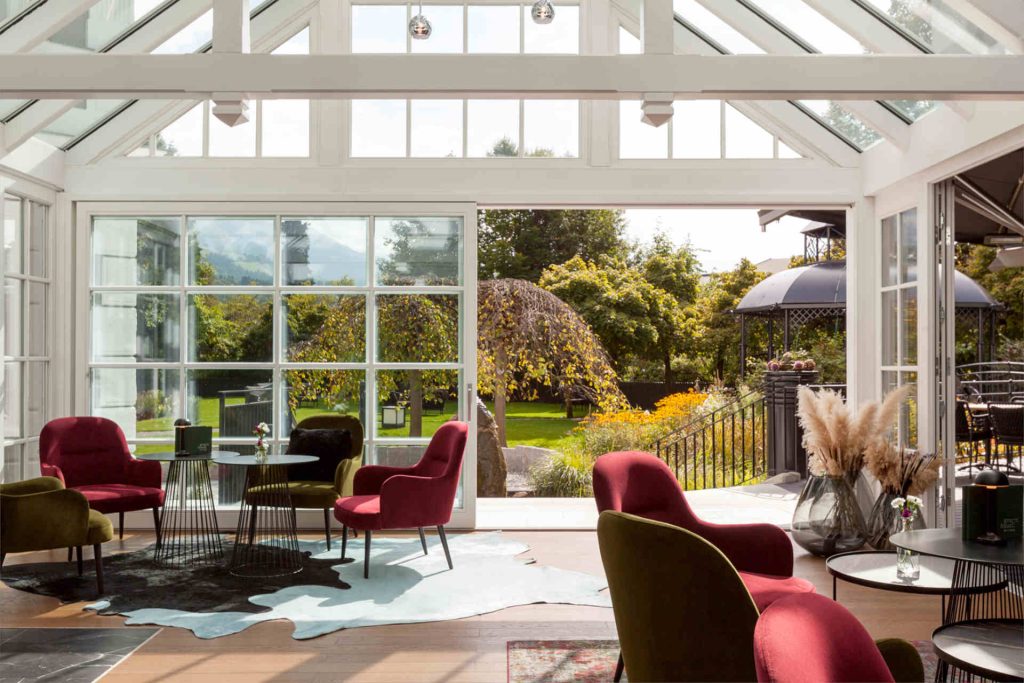
Summer tourism in Austria is experiencing an upswing – but not without challenges. Between geopolitical uncertainty, climatic changes and changing guest needs, the industry has to reinvent itself. Why “coolcation”, intentional travel and retreat offers will make the difference in the future – and how a hotel on the Arlberg is already serving as a role model.
In 2023, Austrian summer tourism reached a new high: at 16.6 billion euros, the summer season even surpassed the traditionally strong winter season (13.3 billion euros). 45 million guests accounted for around 151 million overnight stays. However, the positive figures should not obscure the fact that the general conditions are changing - and with them the expectations of tourism businesses.
Österreich Werbung describes the situation as “characterized by uncertainty”: global tensions, high cost of living, geopolitical risks. Nevertheless, the willingness to travel in the most important source markets remains unbroken.
Current travel trends show that guest behavior is changing in several areas:
The importance of international visitors remains high: in 2023, they generated revenue of over 22 billion euros - a huge contribution to Austria's current account balance.
Requirements are increasing in parallel with growth:
The Tourism Satellite Report shows that tourism's share of GDP was only 3.8% in 2022 - before the pandemic, it was 5.5%. Innovative offers and experiences are needed to regain former strength.
The example of the Hotel Goldener Berg in Oberlech shows how theory can be successfully put into practice. Host Daniela Pfefferkorn and her team rely on a holistic summer concept that precisely meets the current needs of guests:
Holistic offerings instead of just “overnight stays”:
Attractive approach and clever packages:
Storytelling with depth:
This model is exactly in tune with the times - and offers valuable inspiration for other hotels on how brands can be emotionally charged and economically successful at the same time.
Another prime example shows that completely new experience formats are also being established: Erika's Garden Club at Erika Boutiquehotel Kitzbühel. The summer hotspot brings the casual vibe of a beach club to the Tyrolean Alps - complete with live DJ, cocktails, garden lounge and natural pond. Stylish design meets culinary lightness and invites hotel guests and day visitors alike to spend carefree hours in the open air.
This concept is exemplary of a new touristic direction that interweaves community, design, enjoyment and lightness - an elegant response to the desire for conscious but informal vacation experiences.
If you want to inspire summer guests, you have to think far beyond the classic accommodation concept. The future lies in curated experiences:
The great opportunity lies in the fact that alpine regions in particular have the best prerequisites in terms of climate, infrastructure and emotions - if they continue to develop courageously now.

From digital voice assistants to AI-supported training, the hotel and restaurant industry is facing a wave of innovation that is rethinking efficiency, sustainability, and the guest experience in equal measure. Four current initiatives show how future technologies are already changing operations today – and what opportunities businesses can derive from them.
If you want to understand why Angelo Coassin, alias @cookingwithbello, has attracted millions of followers online, you don’t have to look far – his first cookbook, “Cooking Like a Real Italian,” is an invitation to a culinary journey through Italy that is as charming as it is practical for everyday use. What particularly struck us while reading it was that the recipes are deliberately kept simple, but never banal. The typical Italian culinary philosophy – few ingredients, maximum quality – is consistently implemented here. From classic antipasti to pizza, pasta, and more, to original dolce and aperitivo ideas such as a tiramisu espresso martini or a pistachio lava cake, the book brings both tried-and-true classics and creative new discoveries to the table.
Between the recipes, Coassin charmingly conveys what Italian cuisine is really all about: the feeling of enjoying food together. This also includes many small but valuable tips, such as the famous pasta water for creamy sauces or the perfect lemon pesto. We particularly like the successful balance between traditional family cuisine and modern influences – inspired by Angelo’s childhood with his mother and grandmother as well as his international career.
INFO:
Cook like a real Italian – Amazingly simple & guaranteed authentic favorite recipes
Author: Angelo Coassin (@cookingwithbello)
Publisher: Südwest Verlag
176 pages
ISBN: 978-3-517-10394-5
Price: €25.00 [Germany] | €25.70 [Austria] | CHF 34.50
Publication date: April 2025


Summer tourism in Austria is experiencing an upswing – but not without challenges. Between geopolitical uncertainty, climatic changes and changing guest needs, the industry has to reinvent itself. Why “coolcation”, intentional travel and retreat offers will make the difference in the future – and how a hotel on the Arlberg is already serving as a role model.